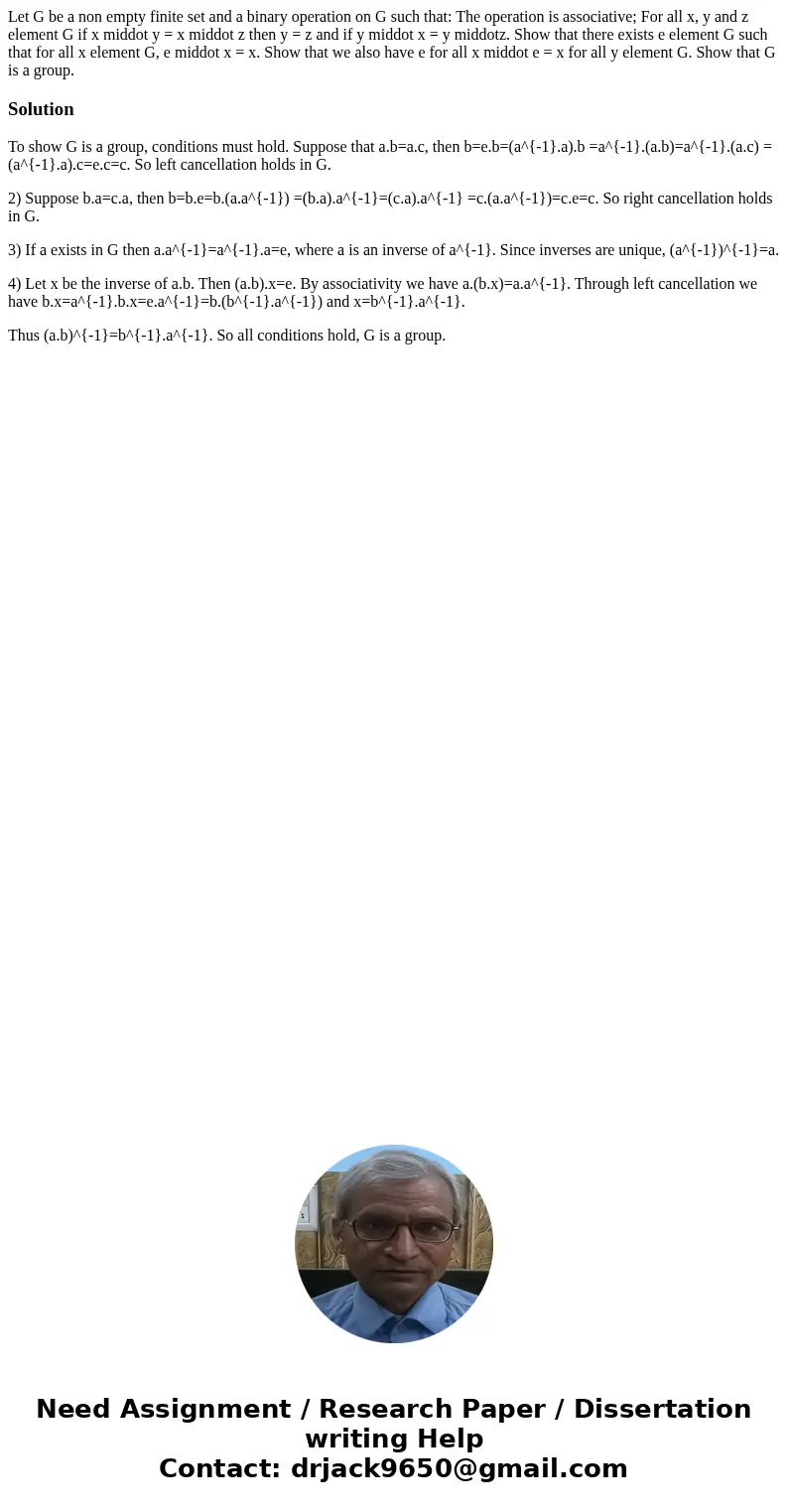Let G be a non empty finite set and a binary operation on G
Let G be a non empty finite set and a binary operation on G such that: The operation is associative; For all x, y and z element G if x middot y = x middot z then y = z and if y middot x = y middotz. Show that there exists e element G such that for all x element G, e middot x = x. Show that we also have e for all x middot e = x for all y element G. Show that G is a group.
Solution
To show G is a group, conditions must hold. Suppose that a.b=a.c, then b=e.b=(a^{-1}.a).b =a^{-1}.(a.b)=a^{-1}.(a.c) =(a^{-1}.a).c=e.c=c. So left cancellation holds in G.
2) Suppose b.a=c.a, then b=b.e=b.(a.a^{-1}) =(b.a).a^{-1}=(c.a).a^{-1} =c.(a.a^{-1})=c.e=c. So right cancellation holds in G.
3) If a exists in G then a.a^{-1}=a^{-1}.a=e, where a is an inverse of a^{-1}. Since inverses are unique, (a^{-1})^{-1}=a.
4) Let x be the inverse of a.b. Then (a.b).x=e. By associativity we have a.(b.x)=a.a^{-1}. Through left cancellation we have b.x=a^{-1}.b.x=e.a^{-1}=b.(b^{-1}.a^{-1}) and x=b^{-1}.a^{-1}.
Thus (a.b)^{-1}=b^{-1}.a^{-1}. So all conditions hold, G is a group.

 Homework Sourse
Homework Sourse